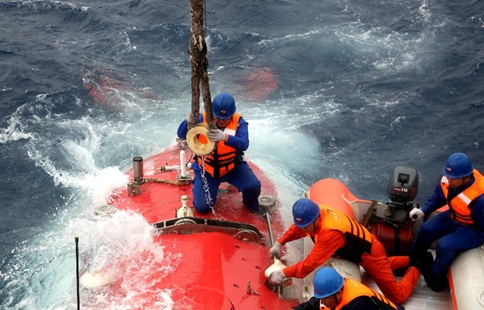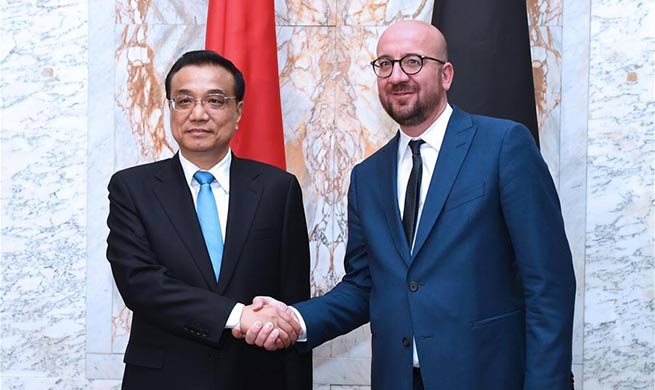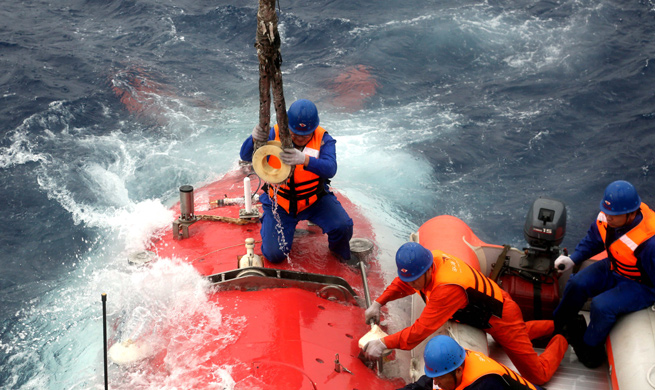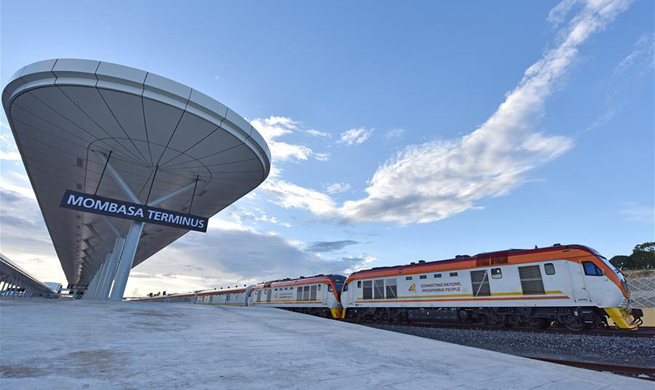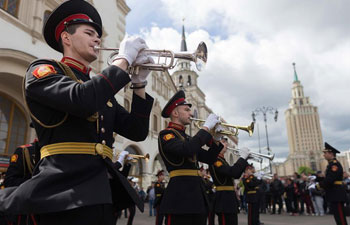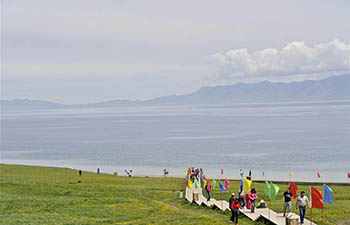MOSUL, Iraq, June 4 (Xinhua) -- Iraqi paramilitary Hashd Shaabi units on Sunday recaptured the town of al-Baaj and 12 nearby villages from Islamic State (IS) militants, as part of an operation to drive out the extremist militants from areas near Iraqi-Syrian border in west of Mosul, the units said in a statement.
The Hashd Shaabi units, backed by the army's helicopter gunships, liberated al-Baaj, some 20 km east of the Syrian border, after they stormed the town from three directions in the early hours of the day, the statement said.
The liberation of the town is vital for the units, as the town was a safe redoubt for the extremist group, and some of its top leaders, including Abu Bakr al-Baghdadi. The town was also vital for the group's supply routes between Iraq and neighboring Syria, according to the statement.
The town is located in the rugged sprawling area in south of the town of Sinjar, some 100 km west of Mosul.
The units also freed 12 villages scattered around al-Baaj and cleared a main road in north of the town from roadside bombs and booby-trapped cars, the statement said.
During the day, the paramilitary units killed some 37 IS militants and the helicopter gunships destroyed two car bombs in south of al-Baaj, the statement said, adding that the forces destroyed several IS headquarters and posts outside and inside the town.
The liberation of the town is part of a major offensive designed to secure the border areas with neighboring Syria and cut off IS supply routes between Mosul and the Syrian city of Raqqa, the de-facto capital of the IS self-declared caliphate.
On May 29, the units made their first arrival at the Iraqi-Syrian border after they freed the town of al-Qahtaniyah, some 18 km east of the Syrian border.
The operations near the Syrian border came as Iraqi security forces, backed by the anti-IS international coalition, were simultaneously conducting a major offensive to dislodge IS militants from their major stronghold in western Mosul.
Mosul, 400 km north of Baghdad, has been under IS control since June 2014, when government forces abandoned their weapons and fled, enabling IS militants to control parts of Iraq's northern and western regions.







